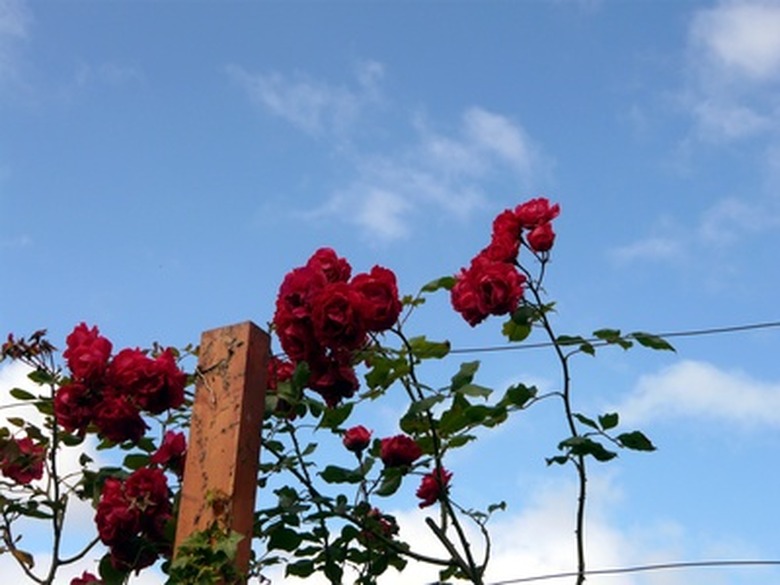What Insects Eat Holes In The Leaves Of Rose Bushes?
Rose bushes make an attractive and succulent meal for a range of insects and pests. Their leaves are particularly desired by Japanese beetles, rose slugs and leaf cutter bees, according to Michigan State University, all of which can leave holes and punctures in their wake.
While the harvesting activity of these insects is rarely deadly to rose bushes except in cases of extreme infestation and defoliation, they can cause the leaves to look ragged and sparse, giving the plant a slightly bare and unhealthy look.
Beetles
Several species of beetles feed on the foliage of rose bushes. Most common among these are the Fuller rose beetle (known as Asynonychus godmani), the Rose Chafer (Macrodactylus subspinosus) and the Japanese beetle (Popillia japonica). Adult beetles chew the leaves in irregular patterns and leave somewhat ragged edges.
Beetle populations, when large, can defoliate a rose bush and the beetles are attracted to congregating together. Early action when one or two are first spotted is critical to preventing an infestation. When small numbers of beetles are present, they can be removed by hand but when large populations are active, chemical insecticides are required to tamp down the populations.
- Rose bushes make an attractive and succulent meal for a range of insects and pests.
- Beetle populations, when large, can defoliate a rose bush and the beetles are attracted to congregating together.
Leaf Cutter Bees
Leaf cutter bees excise pieces of living rose leaf tissue to line their breeding nests but unlike the other common pests, do not ever eat the leaf tissue. Their damage is somewhat limited and the large round holes with smooth margins are less obvious to the casual observer.
The margins of the cut site on the leaf may brown or they may remain green making the damage even less visible. Treatment of leaf cutter bee activity is not considered desirable as they are needed for pollination.
Sawfly Rose Slugs
Two species of rose slugs, Endelomyia aethiops and Cladius difformis, traverse the rose bush foliage when young, sucking the fluid out of the leaves. This causes skeletonization so that the leaves are thin and turn a pale taupe brown in irregular spots. Reminiscent of stained glass with the glass broken out but the lead mullions in place, the leaf veins remain in place as dead tissue with empty space between them.
- Leaf cutter bees excise pieces of living rose leaf tissue to line their breeding nests but unlike the other common pests, do not ever eat the leaf tissue.
As rose slugs mature they begin to chew and digest the leaf tissue entirely, leaving irregular holes with ragged edges. Slugs are best lifted off the plants or sprayed with a strong stream of water. When severe infestation occurs horticultural oil and insecticidal soaps can be used to kill the larvae and drive the slugs away.
